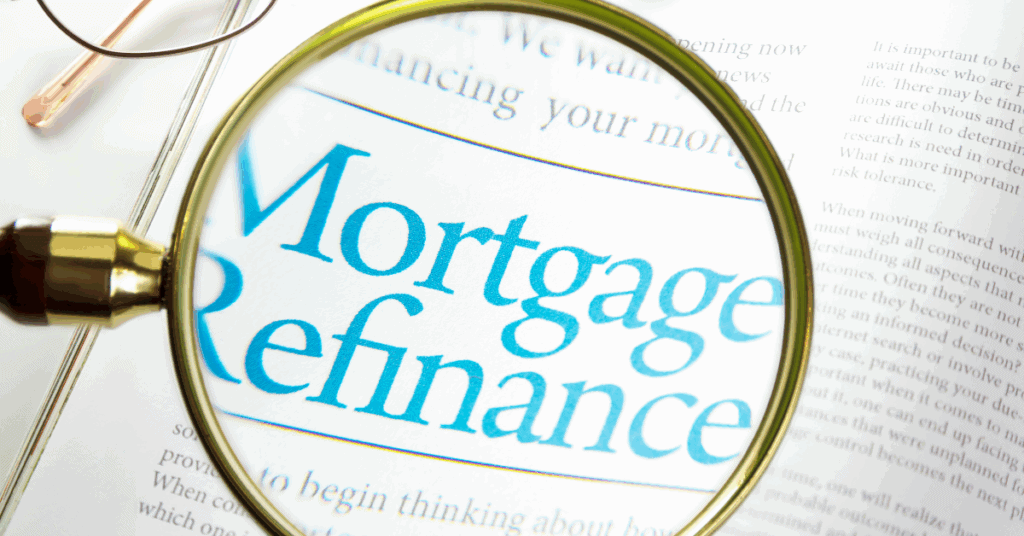Your Best Mortgage Options — Instantly
- Get matched with vetted mortgage lenders in minutes
- Save time with one simple form — no need to shop dozens of sites
- No credit impact. No sales pressure. Just the best fit for your goals
You’re two years into your mortgage. What if you switched your 30-year fixed for a 15-year?
Well, you might save upwards of $85,000 in interest assuming similar interest rates for both loans.
But a 15-year has drawbacks, too, like a huge monthly payment. Here’s what to consider when thinking about refinancing into a 15-year loan.




Let’s break down the advantages of making this shift.
One of the most compelling reasons to exchange a 30-year mortgage for a 15-year mortgage is that you build equity faster.
With a shorter loan term, a larger portion of each monthly payment is directed toward reducing the principal amount owed.
The power of interest savings cannot be understated when considering a mortgage refinance. Transitioning to a 15-year mortgage means a homeowner could save upwards of $100,000 or more over the life of the loan, assuming they haven’t had their 30-year fixed loan long and are refinancing into a similar-rate 15-year.
While it’s true that monthly payments on a 15-year mortgage are going to be higher compared to your 30-year payments—the overall cost of the loan is significantly lower.
You pay much more principal each month with a 15-year, reducing interest costs substantially.
Speaking of the time the mortgage is paid off: opting for a 15-year mortgage means that homeowners can attain financial freedom sooner than they would with a 30-year loan.
This shorter-term accomplishment also enables individuals the opportunity to enter retirement and pursue other life goals without the burden of mortgage payments hanging over their heads.
With a fixed-rate 15-year mortgage, homeowners are shielded from the potential volatility of interest rate fluctuations that can impact adjustable-rate mortgages, which are a popular alternative to 15-year loans thanks to their lower initial start rates.
Get your 15-year loan quote here.A 15-year mortgage refinance can be an enticing choice for homeowners seeking to save on interest and accelerate their mortgage payoff.
An accelerated payment plan does allow for faster loan payoff, but it likely presents challenges. If you lose your job, enter retirement, or experience a loss of income of any type, the payment might become unmanageable.
The secondary impact of higher monthly payments means you could reduce the available ‘wiggle room’ in your budget. You could become “house poor” — a condition in which all your income goes toward your house payment.
Another drawback of this strategy is the heightened risk of defaulting due to the higher monthly payments. For many people, it’s better to keep a 30-year fixed loan and make payments as if it were a 15-year. Then, you can always go back to the lower payment option if needed.
When you decide to refinance your mortgage, keep in mind that there will be upfront fees and costs. These can differ based on the lender and the type of loan. Let’s take a look at some typical fees and costs associated with mortgage refinancing:
Beyond the effects of higher payments, it’s imperative to evaluate if the added cost of upfront expenses outweighs the potential benefits.
Furthermore, it’s advisable to explore multiple lenders and compare offers to ensure you secure the most advantageous deal available.
When refinancing your mortgage, it’s crucial to take into account the possibility of a higher interest rate compared to your previous agreement.
This increase may stem from various factors, such as market fluctuations, your credit score, or changes in your financial situation.
To ensure you secure the most favorable terms, explore and compare rates offered by multiple lenders.
Connect with top refinance lenders here.If you have other financial aspirations, such as building up your retirement nest egg or tackling high-interest debts, committing to a 15-year mortgage may not be the most suitable path.
Higher monthly payments could potentially limit your ability to save or address other outstanding debts or investment strategies.
To make an informed decision, take a comprehensive look at your overall financial circumstances and ascertain whether a 15-year mortgage refinance aligns with your broader financial goals.
If you’re contemplating refinancing your 30-year mortgage to a 15-year mortgage, yet you have some concerns about the potential drawbacks of higher monthly payments and these other risks, don’t worry. There are also alternative strategies worthy of exploration.
Optimizing your mortgage payoff doesn’t always require refinancing. Instead, you can choose to make additional principal payments towards your existing 30-year mortgage.
This approach offers greater budgetary flexibility without compromising the ability to accelerate your mortgage repayment. Also, you could utilize an online amortization calculator to more accurately determine the additional monthly payment needed.
Consider a less drastic shorter-term mortgage—like a 20-year or 25-year option. It offers a balance between a 30-year and 15-year mortgage. This approach allows you to accelerate your mortgage payoff without sacrificing flexibility in your budget, unlike a 15-year mortgage.
A skilled financial planner can offer tailored guidance to assess your financial situation and assess whether transitioning to a 15-year mortgage aligns with your long-term financial aspirations.
They can also assist you in examining alternative strategies and provide valuable insights into the potential risks and benefits associated with each option.
As you stand at the crossroads of mortgage options, the choice to switch from a 30-year to a 15-year mortgage requires thoughtful analysis.
While the allure of swift equity growth, reduced interest payments, and financial stability can be enticing, the potential challenges of increased monthly payments and budget constraints can’t be underestimated.
Start your refinance.Our advice is based on experience in the mortgage industry and we are dedicated to helping you achieve your goal of owning a home. We may receive compensation from partner banks when you view mortgage rates listed on our website.


